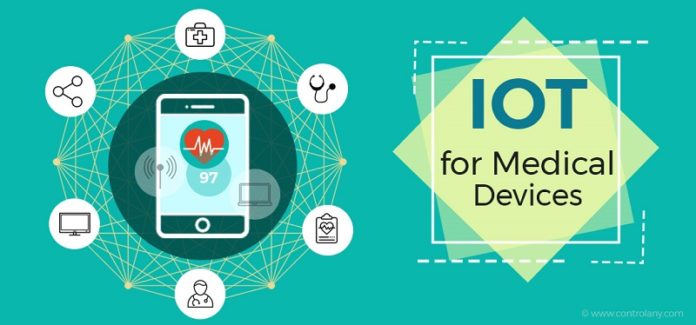- This modern era of technology, that has increased, virtual communication among machines, is paving the way to completely transform the healthcare sector.
- This requires to develop new ways that help reduce waste in the supply chain by leveraging the potential of IoT.

The current efficiency in the medical devices market is appalling. These devices alone contribute to billions in waste annually. This waste usually originates from excess inventory, product loss, expired products, revenue leakage at the point of charge capture, and unnecessary shipping costs caused by poor inventory tracking and planning.
This has also resulted in an increase of unnecessary costs in the healthcare industry. All this calls for an immediate action to eliminate waste in the supply chain.
Steps that can be taken
Consider the below 3 opportunities to apply an IoT approach and take advantage of it that can help promote efficiency in a hospital’s supply chain.
- Develop a holistic view of your supply chain, all the way from sourcing to storage
The healthcare supply chain is no longer just about manufacturing, distributing, and transporting products. In order to properly evaluate the value chain, it must be viewed holistically, encompassing both direct and indirect costs. This demands lots of data to be collected for a widescale evaluation and action.
For this, it is essential to adopt IoT based technologies that enable cloud-based system-wide inventory management with data analytics to connect products and processes with their legitimate cost.
2. Invest in technology to improve the “user experience” for clinical staff
According to a recent survey, 42% respondents said that supply chain work took too much time away from patient care, while 45% of frontline providers said that manual supply chain tasks has a “very” or “somewhat” negative impact on patient care.
Fortunately, there are advanced product-tracking technologies, data-sharing capabilities and automated systems that can help to alleviate the stresses of the frontline staff from inventory related burdens and get clinicians back to their patients.
3. Adopt technologies that improve accuracy, speed, and investment
Surgeons and nurses have a big responsibility in improving supply chain operations. In fact, an overwhelming 94% of those surveyed consider supply chain management’s strong correlation to financial success. These clinicians see the benefits of improving the hospital supply chain by properly balancing inventory levels to match usage patterns, reducing and properly managing product expirations, freeing up capital, and reducing patient risk.
Data gathered from IoT connectivity leads to a transformation across an organisation, which includes enabling a proper management of consignment, accurate clinical documentation, and product and workflow standardisation across entire enterprises.










